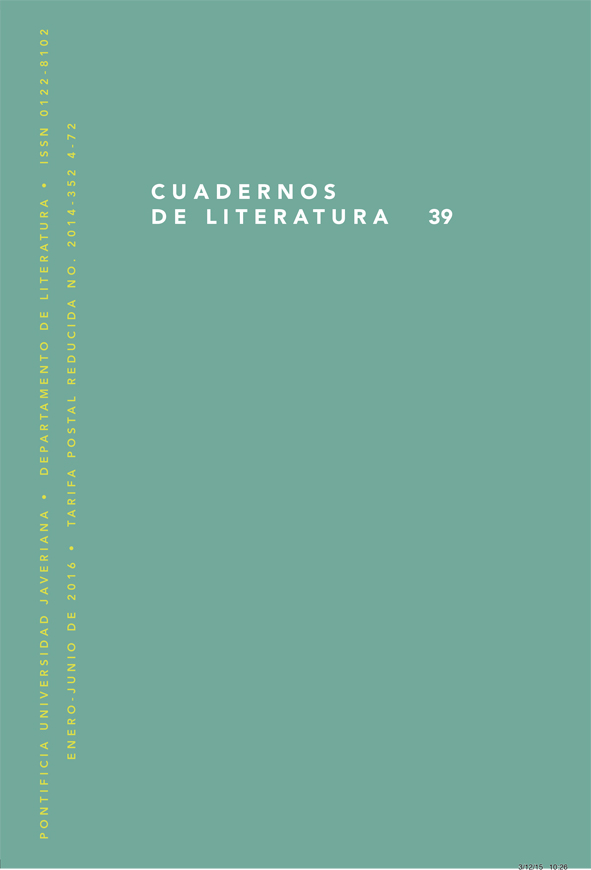Abstract
El artículo propone una reconstrucción teórico-histórica del lugar de la lectura y los lectores en dos momentos de la historia de la cultura latinoamericana. Proyecta, entonces, a partir de los casos mexicano y del Cono Sur algunas proposiciones generalizables para la determinación de dos macromomentos (el colonizador y el decimonónico) en el estudio histórico de la lectura en América Latina. Se destacan, por una parte, las relaciones entre Iglesia, Estado y lectores; y por otra, las relaciones entre estos últimos y los textos. En ambos casos lo que se negocia y disputa socialmente son las formas de autoridad y legitimidad relativa de cada uno de los actores involucrados en la determinación del sentido, función y destino de los textos culturales. Sostengo, además, que estas relaciones son no sólo un aspecto más sino una parte fundamental de las formas de existencia y producción de la literatura en el continente.
Cuadernos de Literatura is registered under a Creative Commons Attribution 4.0 International Public License. Thus, this work may be reproduced, distributed, and publicly shared in digital format, as long as the names of the authors and Pontificia Universidad Javeriana are acknowledged. Others are allowed to quote, adapt, transform, auto-archive, republish, and create based on this material, for any purpose (even commercial ones), provided the authorship is duly acknowledged, a link to the original work is provided, and it is specified if changes have been made. Pontificia Universidad Javeriana does not hold the rights of published works and the authors are solely responsible for the contents of their works; they keep the moral, intellectual, privacy, and publicity rights.
Approving the intervention of the work (review, copy-editing, translation, layout) and the following outreach, are granted through an use license and not through an assignment of rights. This means the journal and Pontificia Universidad Javeriana cannot be held responsible for any ethical malpractice by the authors. As a consequence of the protection granted by the use license, the journal is not required to publish recantations or modify information already published, unless the errata stems from the editorial management process. Publishing contents in this journal does not generate royalties for contributors.


